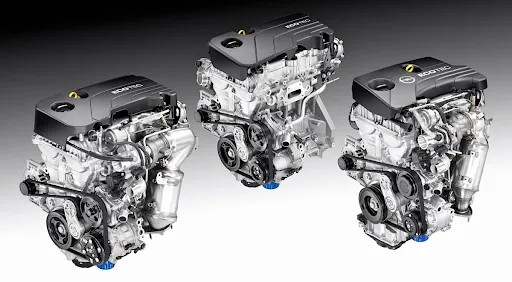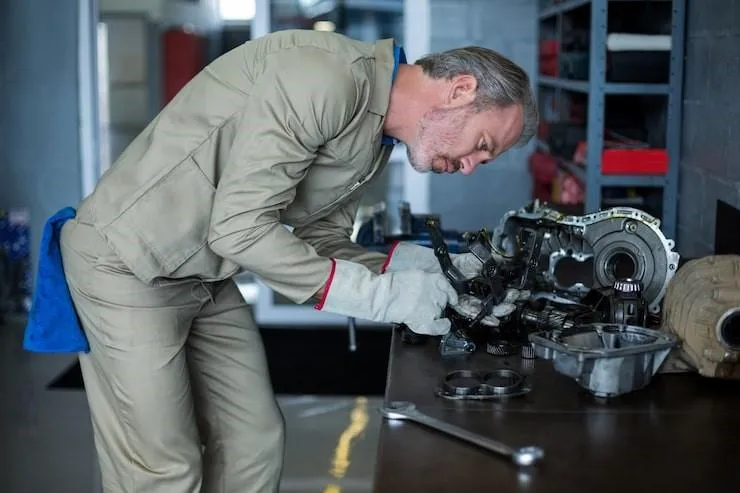Mon - Fri: 8am - 5pm, Sat - Sun: Closed

6-36 Month Warranties
We Ship Local.
Hablamos Español.
Connect with
How Reman Transmissions Are Tested
Reman Transmission Testing
Why Testing Matters Before Installation
When it comes to reman transmission testing, every unit must perform like new before it leaves the facility. Rigorous testing ensures that shifting, pressure regulation, and electronic controls meet strict OEM specifications. Skipping these steps can lead to problems like early wear, slipping, or overheating. Quality testing gives drivers the confidence that their replacement transmission will hold up to daily driving, towing, or tough Houston traffic conditions.
Key checks include the line pressure test, solenoid calibration, and a thorough inspection of the torque converter clutch. These steps offer measurable proof of reliability. This level of transmission quality control distinguishes a true reman from a simple rebuild, which may skip critical procedures.



A transmission dyno sheet documents performance under simulated driving conditions. These reports measure shift timing, hydraulic pressure, and temperature response. By examining shift points and pressure curves, technicians can confirm smooth gear changes and identify any irregularities before installation. Unlike visual checks, dyno testing validates actual performance. For drivers comparing reman vs rebuilt transmission, dyno reports serve as proof that the unit was thoroughly verified before shipment—an assurance that Houston Engines stands behind every unit sold.
Testing Procedures That Ensure Reliability

Every Houston reman transmission undergoes strict testing protocols to prevent premature failure. The process begins with a hot flush to remove contaminants, followed by a line pressure test to verify that hydraulic circuits remain stable across various RPM ranges. The torque converter clutch is then assessed for proper lockup quality, which helps avoid common drivability issues like shudder or delayed engagement that can frustrate drivers.
Next, electronic controls are evaluated through solenoid calibration and current ramp tests, ensuring each solenoid responds quickly and accurately. Additional steps such as valve body reaming and TCM reprogramming are performed to restore factory-level performance. These combined procedures offer confidence that the transmission will operate smoothly under heavy loads, highway speeds, or tough Houston stop-and-go traffic conditions.
Structured testing helps catch failures before they become customer problems. During remanufacturing, components like bushings, bonded pistons, and clutches—common wear items—are carefully replaced. Skipping these steps can lead to early failure, even in a rebuilt unit. A tested reman provides documented proof of quality. For buyers prioritizing reliability, this adds significant long-term value, especially when supported by warranty coverage and detailed installation checklists offered by Houston Engines to ensure lasting performance and peace of mind.
What Dyno Reports Really Show
A transmission dyno sheet isn’t just paperwork—it’s a detailed record of how a unit performs during controlled testing. It includes critical data such as shift points, temperature stability, and hydraulic line pressure. When this report shows consistent pressure and accurate shift sequencing, it indicates the transmission meets quality standards. For customers, this serves as proof that the transmission has been verified and is ready for real-world performance.
One of the most important indicators on the dyno sheet is shift timing. If a transmission shifts too early, too late, or too harshly, these issues will be recorded in the report. This data allows technicians to make precise adjustments before the unit ships. These final tweaks are essential for ensuring the transmission is properly calibrated and truly road-ready before it reaches the customer.
Temperature control is another key element. Excessive heat during the test often points to problems such as internal drag, incorrect clutch clearance, or torque converter clutch malfunction. Identifying and resolving these issues during dyno testing can prevent drivability problems and early failures. This step in the transmission quality control process protects both the installer and the vehicle owner from future headaches and costly repairs.
Buyers comparing remanufactured transmissions should always ask for documentation. If a transmission dyno sheet isn’t available, it may be a red flag indicating the unit hasn’t been fully tested. Reliable providers, like those serving Houston’s challenging driving conditions, include this data to prove quality. When paired with warranties and proper installation procedures, a dyno-tested reman transmission offers true long-term value, clearly standing apart from a basic rebuild that may lack the same level of precision and durability.
Questions Every Transmission Buyer Should Ask
When shopping for a replacement transmission or a used transmission, it's essential for customers to ask whether the unit has gone through proper dyno testing, a line pressure test, and solenoid calibration. These are not just routine steps—they are critical procedures that verify the most common failure points have been thoroughly addressed. One often-overlooked area is the torque converter clutch inspection. If the clutch fails to lock up correctly, it can cause drivability complaints like shuddering and result in fuel economy losses. By asking about these steps, buyers can ensure they’re getting a transmission that’s been tested for both performance and durability.
In addition to testing, solid documentation is a must. A reputable reman transmission testing process should include a dyno report, detailed warranty coverage, and an installer checklist to guide proper installation. Providers like Houston Engines also stress the importance of cooler flushing and relearn procedures to prevent post-installation failures due to contamination or programming errors. This level of care and transparency gives buyers peace of mind and helps them avoid costly mistakes.

How to Protect Your Transmission Investment
Thorough testing is the foundation of a dependable reman unit. Skipping critical procedures such as solenoid calibration or line pressure testing can result in transmissions that fail prematurely. That’s why Houston Engines integrates factory-level transmission quality control into every build, ensuring each unit meets strict performance standards before leaving the facility. This meticulous approach reduces the chance of early failure and boosts the overall reliability of the transmission.
For customers, this translates to fewer breakdowns and less downtime. When comparing reman vs rebuilt transmission options or evaluating warranty coverage, understanding what “tested” truly means is essential. Unfortunately, not all shops provide a detailed dyno sheet or perform vital processes like valve body reaming, which are critical for ensuring long-term reliability. These testing steps verify that every component functions correctly and that the transmission will perform well under real-world driving conditions.
Houston drivers often rely on their vehicles for heavy towing, daily commuting, or business purposes, which places extra stress on transmissions. Therefore, choosing a properly tested and warrantied unit is crucial for durability and peace of mind. A transmission that has undergone comprehensive testing and comes with a reliable warranty can provide years of dependable service even in demanding environments like Houston’s stop-and-go traffic or highway driving.
If you’re uncertain about your transmission options, don’t hesitate to reach out. Contact us today to learn more about tested and warrantied transmission replacements. With thorough testing and quality assurance, your investment is protected, giving you confidence that your transmission is verified and ready for the road.
Get our latest news and promos
QUALITY ASSURED


SATISFACTION GUARANTEED

UNPARALLELED SUPPORT
Houston Engines
Proud Member



Social Media
Payments Accepted
Ship Via











